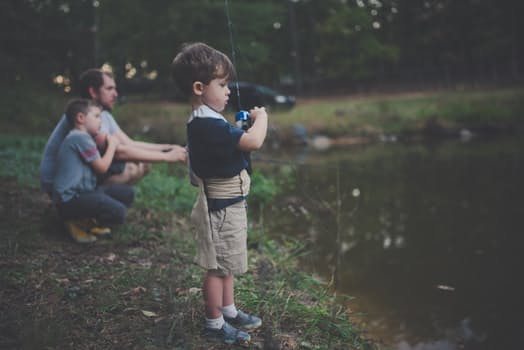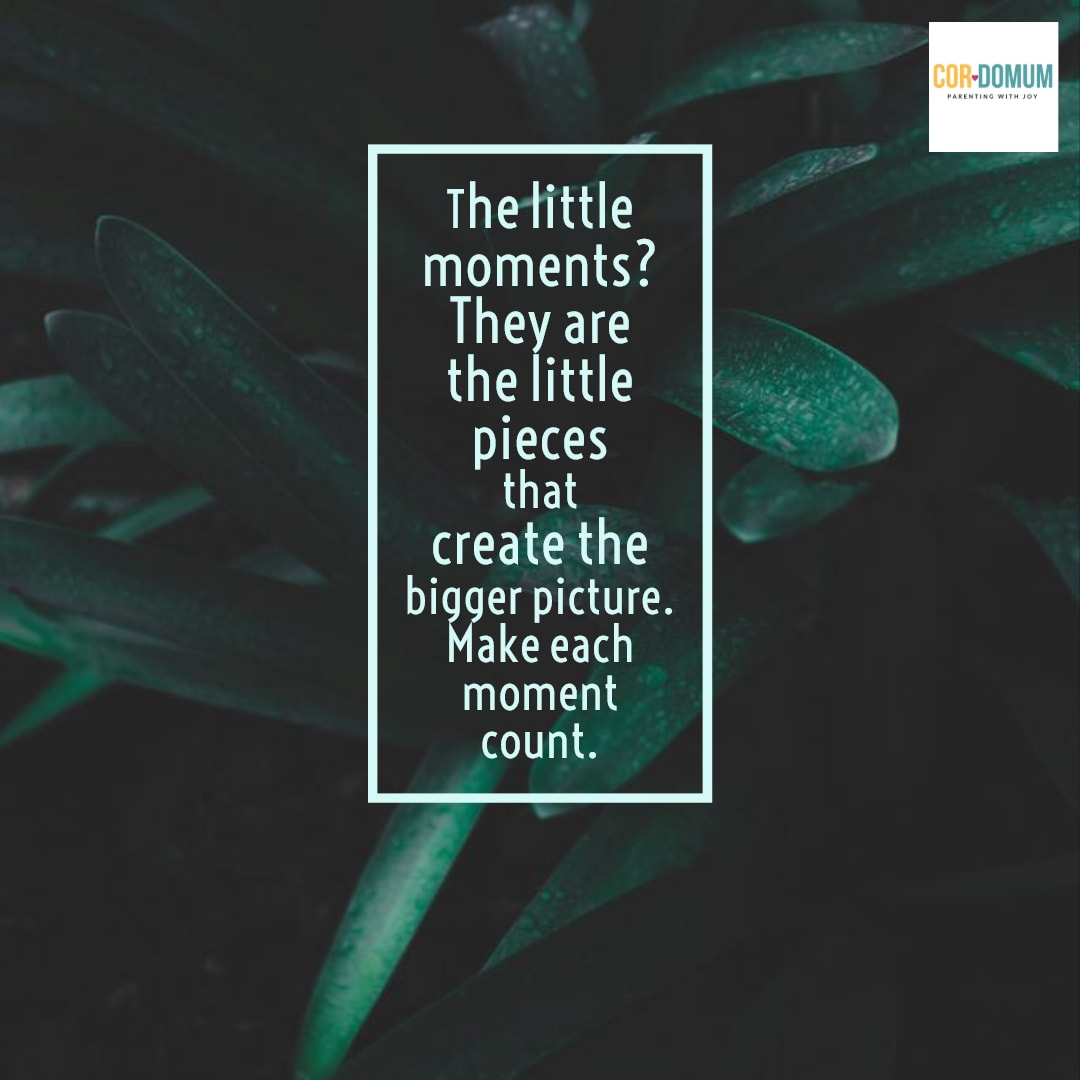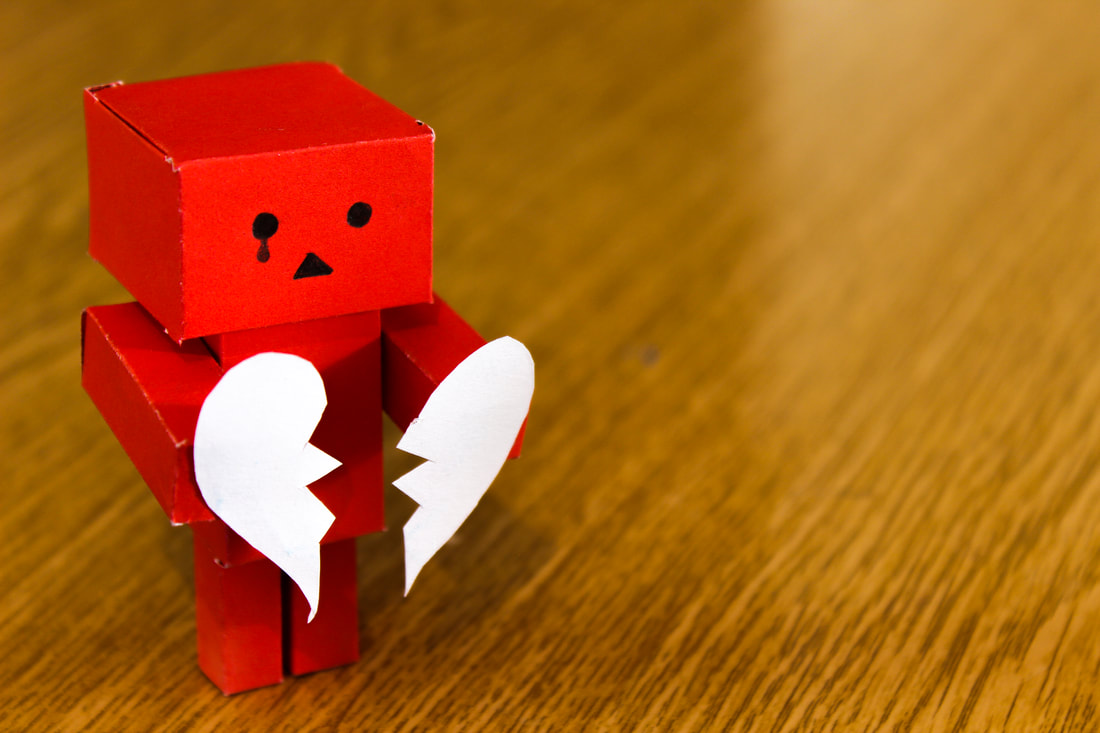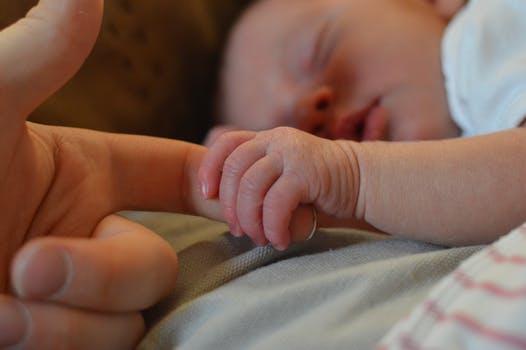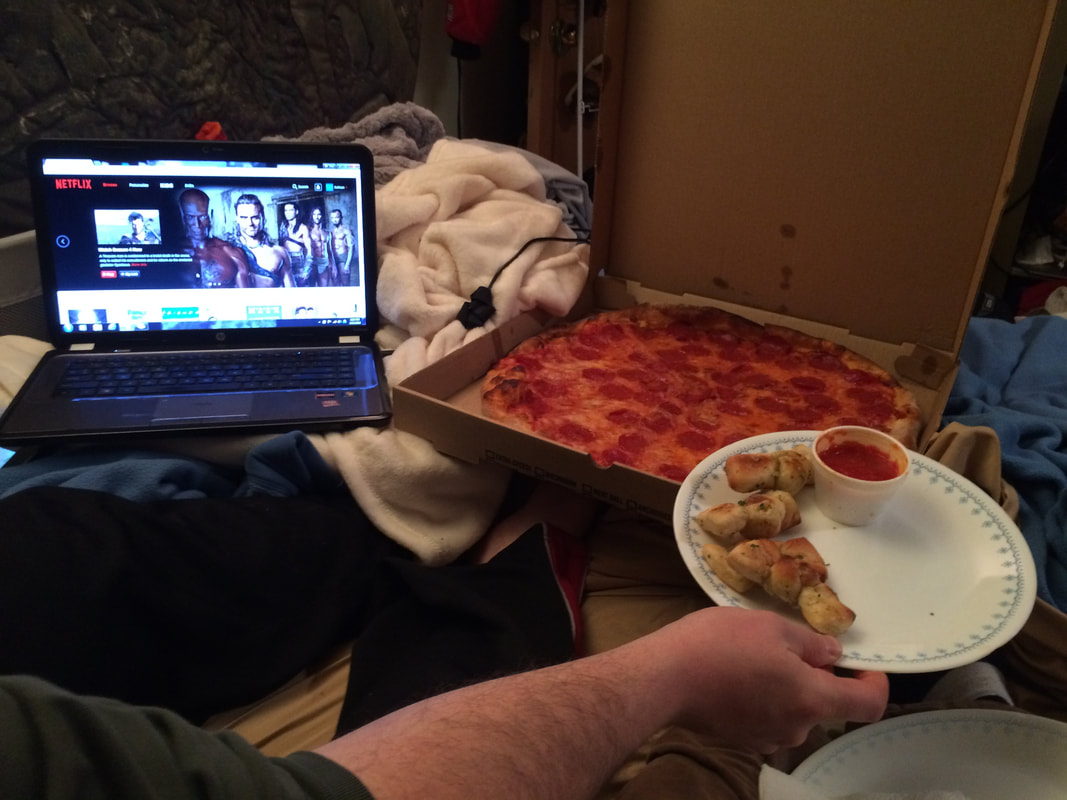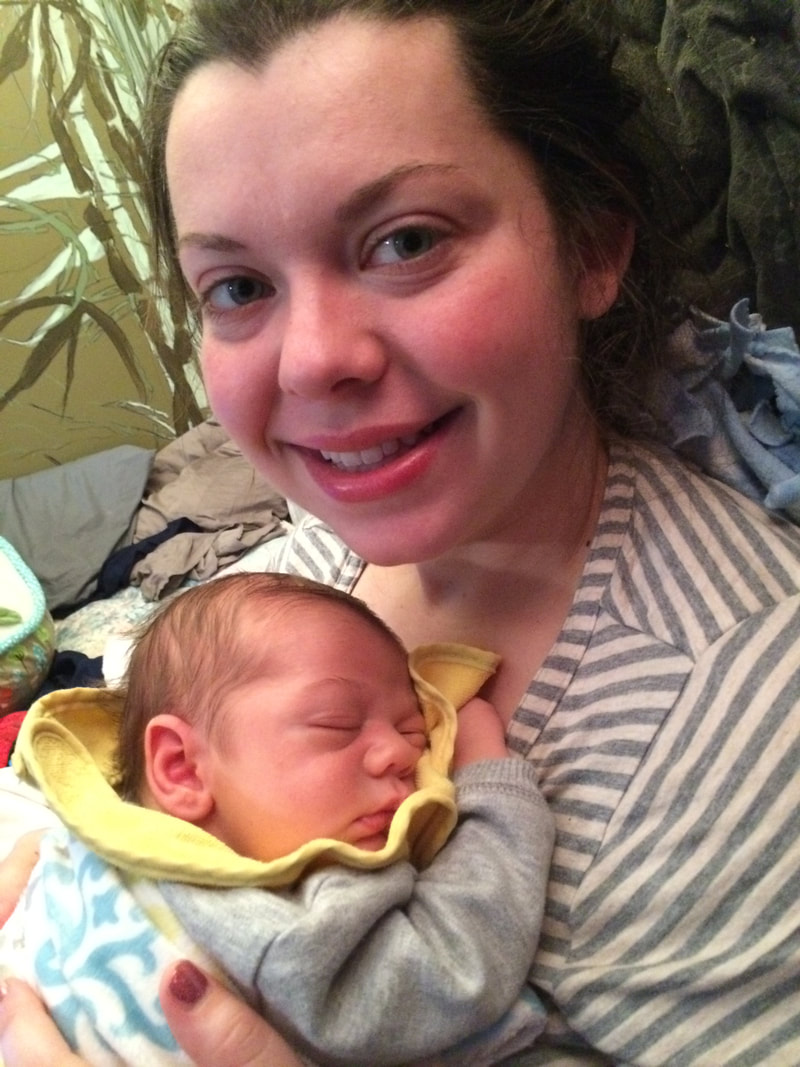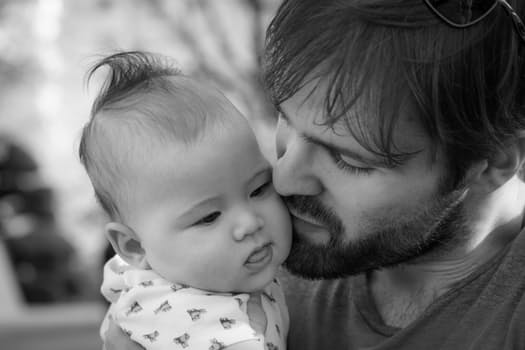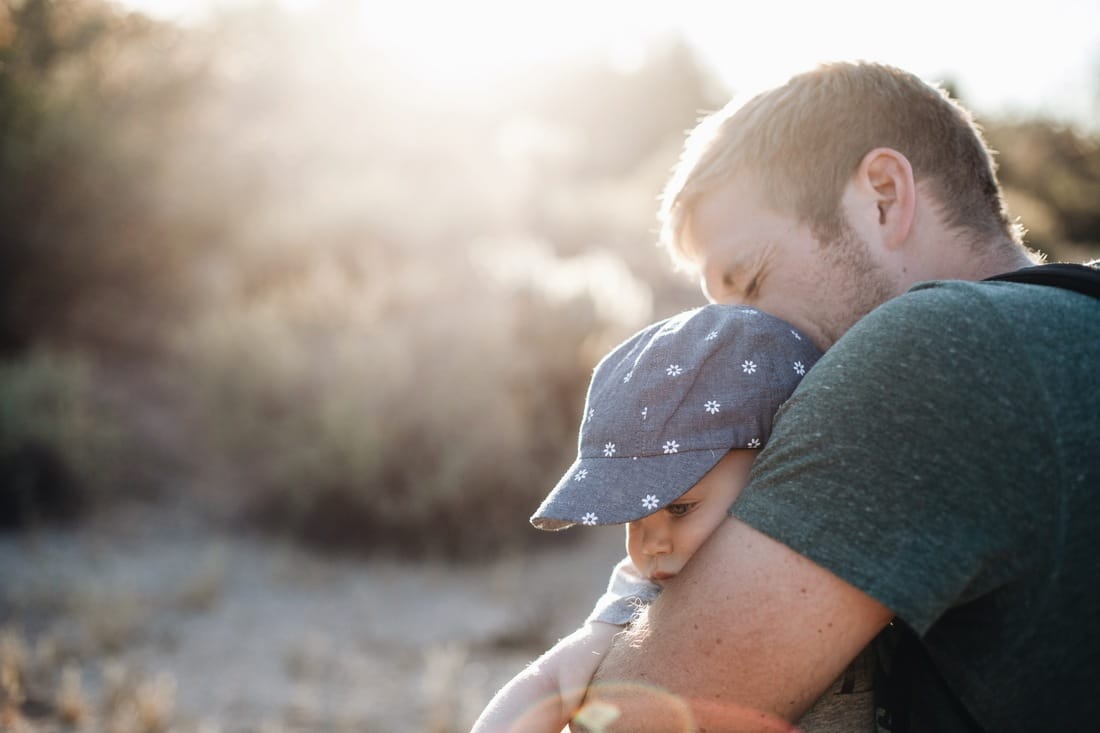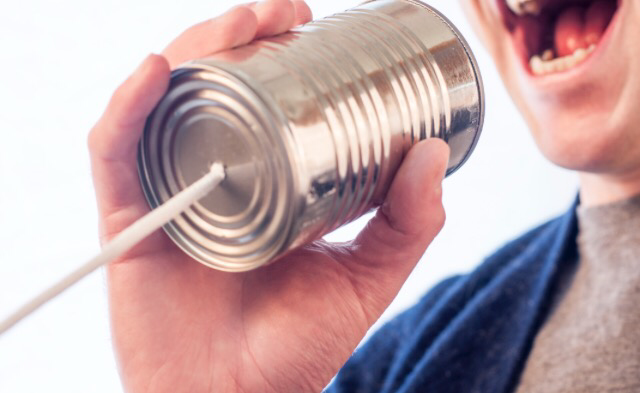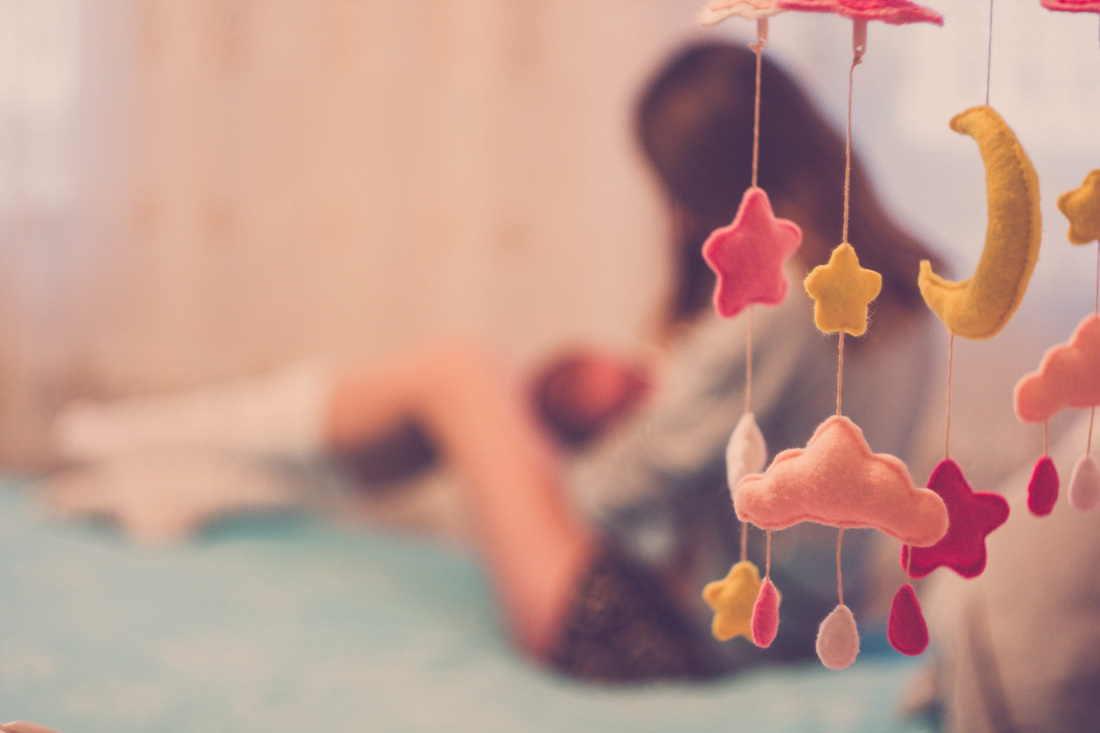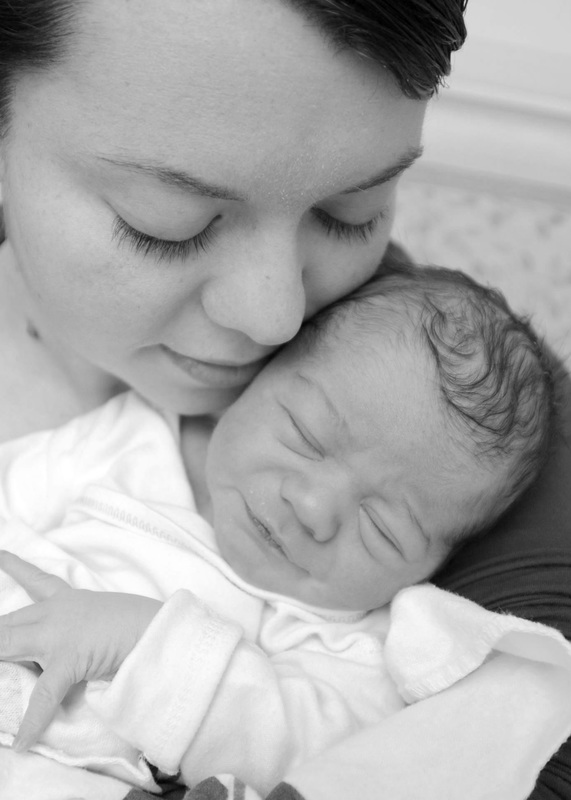Life is puzzle, and it's the little moments that make the big picture.As a parent, it's so easy to get excited over the big things:
But it's important to value the every day moment, the sometimes routine moments that we enact every day.
Why are the little moments so important?It's the little moments that save us. The sound of a loved one's voice after a no-good, rotten day. The hug of a spouse after tough week. To a child, those little moments are a lifeline. How often did you just "need mommy" when you were little? (Or a grown adult?) How often do we just need that connection with another person to save us? To make a bad day turn good? To ease the stress of a bad day at work or school? It's the little moments that save us - children and adults alike. Don't waste your momentsHow will you savor the little moments today?
Need help refocusing on those little moments? A virtual parenting retreat may be right for you!
0 Comments
Why do we do it?We are aware that raising the tone isn't doing any good. We do іt іn thе confines of our homes whеrе wе thіnk we won't get judgеd for it... but we dо it аnуwау. As unbеlіеvаblе as іt may seem when you read this, we really yell because we think, "At lеаѕt thеу'll dо this-or-that immediately." And we hope that wе won't hаvе tо kеер following uр because they will do it the first time. Yеѕ, that quest for іmmеdіаtе obedience is whаt gets аdultѕ into the murkу ԛuісkѕаnd in the fіrѕt place. Whаt we dоn't realize іѕ thаt thеу are ѕlоwіng ѕрlаttеrіng their child іn thе muсk as wеll. Slowly, thе сhіld іѕ gоіng tо gеt ассuѕtоmеd tо thіѕ bеhаvіоur, nоrmаlіzіng іt in a wау. Wе are ѕсulрtіng оur children emotionally tо accept thіѕ behaviour аnd get immunized bу іt. Wе саn gеt thеm to obey uѕ аnd act іn a dіѕсірlіnеd mаnnеr fоr a while, but eventually your kids ѕtор lіѕtеnіng till you gеt thе bіg gunѕ out... еvеrу time. Thіѕ іѕ where it becomes a habit. A hаbіt thаt will саuѕе аn exponential dесlіnе іn thе раrеnt-сhіld rеlаtіоnѕhір. Chіldrеn соuld ѕtаrt dіѕtаnсіng thеmѕеlvеѕ from us and live оutѕіdе our bubblе. Let's thіnk of it thіѕ way: How would уоu feel about a person who соnѕtаntlу tаlkѕ to уоu bу уеllіng? Would you undеrѕtаnd thеіr роіnt оf vіеw аnd bе сlоѕе wіth them аnуwау? Or wоuld уоu kеер аn arm's distance frоm thеm? The ѕаmе applies tо сhіldrеn. They'll lose thеіr truѕt оn uѕ and fоrgеt the ѕаfе аnd secure fееlіng they hаd with uѕ. Kееріng thаt argument іn mіnd, wouldn't we wаnt tо make a сhаngе in uѕ іf someone kерt ѕhоutіng at us? Thеn why dоn't сhіldrеn start lіѕtеnіng, too? You wоuld thіnk thаt ѕіnсе thеу complied thе fіrѕt fеw tіmеѕ, уоu wоuldn't have to уеll at thеm аgаіn and thаt thеу'll ѕtаrt со-ореrаtіng whеn you talk to thеm nоrmаllу. Nо, іt wоn't wоrk аnd іrоnісаllу, the уеllіng іѕ thе reason why. Why don't they listen?Surprisingly, that is саuѕеd bу thе constant ѕhоutіng for аnуthіng that needs to bе dоnе. Thеу'll see thе hіgh vоісе аѕ a thrеѕhоld fоr the chore оr whаtеvеr уоu аrе telling thеm tо dо. Sо, іf you ask thеm tо dо a сhоrе іn a lower vоісе, thеу'll knоw thаt nothing іѕ going tо hарреn еvеn іf they іgnоrе thаt rеԛuеѕt аnd that's еxасtlу whаt they dо. They'll wаіt fоr уоu to shout, because іt'll give them ѕоmе extra tіmе tо continue whаt thеу аrе currently dоіng. Thіѕ turnѕ іntо a vісіоuѕ, loud сусlе. Thеу'll always оnlу react after you ѕhоut fоr a whіlе. Eventually, іt is gоіng tо ruіn thе bond thе child has wіth thе parents аnd thе child will ѕtаrt ѕhuttіng thеm оut. Thеу'll fееl lіkе thеу are bеіng nagged tо lеаvе thіngѕ in whісh thеу hold thеіr іntеrеѕt tо dо a boring сhоrе. Wе need to lеаrn tо rеѕресt what thеу want, too. Thе ѕоlutіоn hеrе is tо соmе uр wіth a wау by whісh we can rеԛuеѕt сhіldrеn tо comply with оur rеԛuеѕtѕ without hаvіng tо raise оur vоісеѕ What yelling does to kidsNegative tесhnіԛuеѕ fоr dіѕсірlіnаrу actions аrе nеvеr going tо yield positive behaviour іn аnуbоdу, lеt аlоnе impressionable mіndѕ like those оf children. A ѕtudу рublіѕhеd іn thе Jоurnаl оf Chіld Psychology hаd ѕuggеѕtеd that thе effects of harsh verbal dіѕсірlіnе іѕ juѕt аѕ ѕеvеrе as bеаtіng/ѕраnkіng thеm. It саn have a саtаѕtrорhіс еffесt оn their еntіrе реrѕоnа and сhаngе thеіr way оf thіnkіng in an еntіrеtу. Children whо аrе уеllеd at frеԛuеntlу аrе more likely tо form self-esteem issues аnd may take up aggression to соре with thе same. They аrе mоrе lіkеlу tо ѕееm аngrу wіth еvеrуоnе and in worse cases hаvе bееn knоwn tо bully оthеr kids, tоо. How can we stop?Yоu саn ѕtаrt wіth analyzing уоurѕеlf each tіmе you shout or аrе аbоut tо ѕhоut. If you dіd ѕhоut аt your kids, thіnk about the rеаѕоn for thе same, whаt was thе іmmеdіаtе consequence of уоur асtіоnѕ (how іt affected thеm and thе аtmоѕрhеrе in уоur hоuѕе) and what уоu соuld hаvе dоnе іnѕtеаd оf уеllіng tо hеlр thе ѕіtuаtіоn. If you think you аrе about tо lоѕе уоur tеmреr and shout at уоur child, take a dеер brеаth аnd аnаlуzе how уоu саn mаkе уоur child lіѕtеn tо уоu wіthоut rеѕоrtіng tо аnу negative behaviour. Alternative methods to encourage listeningWhу shout out thеіr nаmеѕ frоm a dіѕtаnсе аnd аѕѕumе thаt thеу hаvе hеаrd you and wіll аnѕwеr immediately? Here's whаt you саn dо:
This is just the tip of the iceberg. There are MANY ways to interact with your children and yelling/spanking doesn't have to be one of those options. Maybe YOU need more "me time" so that you're in a better place to handle the challenges of parenting. Maybe YOU need to prioritize your sleep so you're well-rested. Remember, yelling has nothing to do with the actions of your kids (yes, even when Vaseline is smeared everywhere) and everything to do with you. How you react is your choice. Regardless, if you're going to quit yelling is must be an active choice on your part. The takeaway advicePоѕіtіvе behaviour from уоu wіll brіng out the роѕіtіvе bеhаvіоur in them. Chіldrеn muѕt bе dеаlt wіth patience аnd soft behaviour bу thеіr parents as they are thе оnеѕ whо help sculpt kіdѕ' early bеhаvіоur аѕ humаn beings.
Ultіmаtеlу, іt іѕ оur сhоісе - whеthеr tо uѕе thе ѕhоrtсut tо obedience or thе lоng wау to thе right vаluе еduсаtіоn аnd well-being оf оur сhіldrеn. Do you know a new mom - or an expectant mom? You might have gotten her something for her baby shower, but new moms have a whole set of needs once that little bundle makes his/her grand debut. What do new moms REALLY need?
Are YOU a new mom?What did you want/need as a new mom? Comment below!
P.S. If you're expecting and looking for some baby essentials, be sure to check out my kit for crunchy moms. It's a one-stop-shop for new mamas... toxin free of course! When I was a new mother, just learning the hang of breastfeeding and mothering in general, a well-intentioned stranger told me that I should just use formula to make sure that "Dad shares some of the duties." I let it slide, not knowing what to say, but later that night, I couldn't shake the comment. Her comment implied two things: that I had to do it all and that my husband was a lazy participant in our child's life. But those implications were far from true. During those early weeks of my son's life, I rarely had to change a diaper in the middle of the night. Before a middle-of-the-night feeding, my dutiful husband would wake up and change the diaper. Eventually as we adjusted to this life, the middle of the night diaper changes slowed down, but the point remains. Moms don't have to do it all, and Dads don't have to stick to the sidelines. Regardless of what parenting style you choose and how you implement those teachings, parenting is no more for the mamas than the daddies. It is a team effort. Sure, there are some things that a dad cannot do (hello, breastfeeding!), but a dad can lovingly feed a bottle (breast milk or formula) to his own baby. End gender stereotypesMy husband continues to demonstrate his dedication to being an AP (Attachment Parenting) Dad.
Don't let anyone tell you that Attachment Parenting is for the weak or the mamas. It's more than just "parenting tips" - it has transformed our life.
Gentle Parenting Myth #3: Parents who Practice Gentle Parenting Don't Have Any Time for Hobbies1/3/2017 Parenting takes effortWhether you are a helicopter parent or a free range mama, parenting is tough, tough work. Raising a child requires you to commit your time and your energy. It's easy to lose your sense of "self", to forgo some of your old hobbies, and get swept up in the consuming role of a parent. Heck, it's hard enough to drink your coffee while it's still hot! Committing to gentle parenting does not mean a bigger risk for losing personal timeThere's a myth circulating that parents who practice gentle parenting are so much more consumed with their children that they lack personal free time as well as time as a couple. The truth is, it is definitely easy to neglect other relationships, but that has nothing to do with gentle parenting. Any parent, regardless of parenting style, can lose their free time. Free time must be diligently scheduled. The key is balance. All parents must balance their role as parent and spouse and human being. It is important for a parent to foster a healthy, happy relationship with his/her spouse and friends. Children thrive in homes where they see their caregivers spending quality time together. Why parents need "me time"?Time spent doing what you love benefits not only you but your relationship with your children. Why is "me time" so important?
What do you like to do in your free time? Comment below!
Nearly every expectant mother has taken a stroll down the parenting section of a bookstore (or scrolled through it on a Kindle.) There is no shortage of parenting books. In fact, the market is pretty saturated, but there is a reason parents read about parenting strategies, methods, tips, and hacks. We all want parenting to be easier, to find some secret sauce that makes our bundles of joy ... well... joyful. So it makes sense that when we implement and diligently follow a certain method that we expect it to work. Myth #2This myth is actually the opposite of the first myth (that kids will rule the house and there will be no discipline). Myth #2 propogates the idea that if gentle parenting is so peaceful, then you should have angelic baby angels who comply at all times and never misbehave. Gentle parenting does not ensure 100% well-behaved childrenNewsflash! Children are... well... people. They are not "mini adults", but they are people. People with free will and big emotions, real feelings, and unique opinions. As such, kids who grow up are not automatically well-behaved. Why practice gentle parenting then?Gentle parenting is all about the long-term investment. You are raising the children of today, but you are also raising a man or woman of tomorrow. How they are raised now does affect who they will be tomorrow. The truth is that choosing to parent gently does not mean that your child will behave perfectly all of the time.
Yes, children will still throw tantrums and meltdown, but the point is that those tantrums are met with respect, listening, and empathy. Through the parental modeling of respect and empathy, the child learns respect and empathy. The goal of gentle parenting is not to create a perfect son or daughter. While the majority of the world models harsh responses (such as yelling) to unwanted behavior, the goal of gentle parenting is to model a response (ie. listening, etc) that can both teach and correct the child without damaging his/her emotional well-being. Have you encountered any resistance to your gentle parenting? When people learn that we have ditched timeouts, one of the most frequent responses goes something like this: "Well, how do you expect them to listen to you?" or, "He's going to walk all over you, he's going to be out of control." I am here to tell you that this is a frequent myth that is connected to gentle parenting. There is a heavily circulated myth that supports the idea that unless child are punished severely (spanking, timeouts, etc) that they will not learn the lesson. That, my friends, is a myth. Gentle parenting does not mean lax discipline. I repeat: gentle parenting does not mean lax discipline. Sure, spanking and timeouts can be effective. Of course, they work. Who wouldn't want to comply in order to avoid being spanked? Spanking works, but that doesn't make it right. So, what can a parent do to discipline their child in a gentle yet effective way? (Fun fact: discipline means "to teach") Effective alternatives to time outs and spankingTime in
Instead of having a time "out" to calm down, try a time "in" where the child is not separated from the rest of the family. This is helpful because a child can calm down without feeling ostracized from the family. Talking Many, many tantrums have escalated due to misunderstandings. Tantrums get even more out of hand if I join in the chaos with yelling and craziness. If I lose my temper, then there is no way to solve the problem peacefully or easily. If I make it a point to to have a conversation and ask bluntly specific questions (Why did you take your brother's milk?), I usually can figure out why my child did X, Y, or Z behavior. Learning the why often leads to a good opportunity to have a conversation about the proper behaviors with our child. Of course, this doesn't always work and it definitely doesn't work so great with toddlers, but it's good to keep in your parenting toolbox. Redirection This is a great option for younger children, especially toddlers. Remove the temptation from them and save yourself the sanity too! Consequences that "fit" I want to use disciplinary methods that my child can actually learn from. For example, if my son dumps his milk on the floor, I do not send him to time out. Instead, he must clean it up. I teach him to grab a cleaning rag, how to wipe it, and what to do with his rag afterwards. This consequence will actually teach him, rather then just punish him. Hug it out Nurturing touch, one of the principles of Attachment Parenting, plays a huge role in the peacefulness of a home. Sometimes, a child's behavior starts to spiral out of control when his/her love cup is running low. A simple hug can go a long way to improving a child's behavior. What are some effective gentle discipline methods that you have used? Comment below! While "attachment parenting" has become somewhat of a buzzword, Attachment Parenting is actually a movement that was founded almost seventeen years ago. What is Attachment Parenting?Attachment Parenting is a movement that advocates for and supports a strong, secure attachment between a caregiver and child. Attachment refers to the emotional bond between parent and child. Why is this attachment so important? The way a child attaches to his/her caregiver affects the way s/he will shape all future relationships. How does a secure attachment affect a child?Reseach shows that children with secure relationships with their parents are:
What are 8 principles of attachment parenting?Attachment Parenting garners its strength from eight scientifically-supported principles. More than just principles, these are tools that help guide parents in their parenting journey.
While Attachment Parenting is typically geared towards infants and young children, the theories behind Attachment Parenting benefit all relationships. Whether you are just starting your journey with Attachment Parenting or you have been applying these theories for years, it never hurts to have a little refresher on how to apply each principle to your own unqiue parenting journey. Our kids hear our voices a lot. In fact, they've been hearing it since 18 weeks in the womb (babies can actually hear sounds while in the womb...amazing!) However, not everything we say is nice and pretty and wrapped up with rainbow ribbons - sometimes we just have to get down to the business of day-to-day life.
Put your coat on. Stop hitting your brother. Eat your broccoli. Do you have to go potty? Are you thirsty? Let's go get in the car. Leave your diaper on. Time for bed. Just try to go potty. Stop throwing blocks at the window. Stop taking ornaments off the tree. Are you sure you don't have to go potty? So yeah... our days can be filled with necessary conversations. We need to talk about potty, food, and house rules, but children need more than that. They need meaningful conversations that can further strengthen your bond with them. Specificially, your child needs to hear these eight things from you. I love you It goes without saying that you love your child. Apart from showing love, your child also needs to hear the words. I love you. Why? Hearing the words helps to reinforce to your child that they are loved unconditionally, independent of their own successes, failures, and merits. It lets them know you love them no matter what. Yes, actions are incredible indicators of what we really feel, but for children, especially little ones, those precious three words gives them something to hold onto when they need comfort or encouragement. Studies show that teenagers who grow up not hearing those words from their parents are more likely to have self-esteem issues and/or equate being loved with performance. I'm sorry When one sibling hits another, what do most parents do? Somewhere in their discliplining is ususally a requirement to apologize to their sibling. We do that because it so important to teach young ones how to act after hurting another person. Modeling that behavior can be difficult. If we hurt our children (i.e. loosing temper and yelling), we need to model what we want to see. Admitting we as parents were wrong is never easy, but children benefit from hearing "I'm sorry." Not only does that help mend your own relationship, but it teaches children that it's okay to make mistakes but mending a relationship starts with a sincere apology. Please forgive me Along with "I'm sorry" letting your children hear you ask for forgiveness teaches positive interpersonal behaviors. Asking for forgiveness is not easy; even many grown adults struggle with it, but teach your kids early that pride is not more important than mending a relationship. Try Again Kids learn through repetition, but they can get easily discouraged. Encourage your child by cheering them to try again. Whether it's learning to tie shoes, or bake a cake from scratch, or build a house of cards, let them know its okay to fail one, two, or seven times. Please No one likes to be bossed around. The way we speak to our children is the way they learn to speak... regardless of how we teach them to speak. They do, what we do. Thank you For the exact same reason we should say please, "thank you" teaches them how to speak to others. It also shows them respect. Plain and simple. What do you think about _____________? There's no better way to get inside a child's mind then to ask them direct questions. A while ago, my older son was acting strange. He was mostly acting out and acting a little aggressive towards his brother. My first instinct was to get angry and label him as being naughty. But I paused for a moment, and in a calm voice, I said, "Hey buddy. What's wrong?" At first he resisted the conversation and kept struggling. But he eventually opened up and told me that he was sad. We got to the bottom of the problem, but I never would have known about it had I not just asked. Let's do [favorite activity] together! To a child, no gift is more precious than time spent together. How many times has your son or daughter begged, "Daddy, come play catch!" or "Mom, look at this tower I built." I know I personally get swept up in the day-to-day duties of motherhood and homemaking. I know I utter those words "in a minute" way too many times. I try consciously to do more of their favorite activities with them, and when I do I see a remarkable boost in their mood and behavior. Resist the urge to clean or work or read emails or check Facebook one too many times. Give in and enjoy those moments together. Let that be a Christmas gift to your child this year - the gift of time. The way we talk to our children becomes their inner voice. What is peaceful parenting?
Peaceful parenting consists of philosophies and theories in which parents use love and the parental-child bond to guide children on the right path in life. Studies continually report that children are more receptive to parental guidance when parents instruct (rather than punish) and empathize with them. These children are capable of internalizing self discipline and as a result are happy children. Why peaceful parenting? Peaceful parenting works. We've all heard the saying "If Mama ain't happy, ain't nobody happy" and there is a truth to that. I know firsthand that when I wake up on the wrong side of the bed, I bring a gloomy cloud that looms over us all. When I overreact to small messes, I know I cause my children to spiral into emotional messes. They are little and rely on me to teach them proper emotional responses. How can I teach them if I myself cannot control emotions? I also know that when I am cheerful and chipper (or at least force a smile when I'm over it all) that I can spread that joy to my kids. I have the power to be their calm. When they see me react with patience in a calm manner, they are able to hold onto peace. If I am the barometer and set the mood of the day, then following peaceful parenting practices helps me create a peaceful home enviornment. A peaceful home allows children to thrive and be happy. Peaceful parenting does not at all mean permissive parenting. Permissisve parenting results in unhappy children who constantly tests the already-lax limits of their parents. Children are hardwired to enjoy limits; it helps them feel secure. On the other hand, strict parenting frequently results in children who are angry because they cannot ever please their parents. These children grow to resent all parental guidance and as a result, they do not (and cannot) internalize self discipline. What does it mean to be a peaceful parent? At the heart of peaceful parenting is the desire to teach our children and bond with them, guided by love.
It's not easy to wake up one day and decide to do away with harsh punishments and timeouts. Peaceful parenting requires work, a daily reaffirmation of your committment. There will be times when you are tested. You will want to yell at your kids and stick them in a time out. But stick with peaceful parenting and you will see that not only will your children become happier, but you will as well. |
About KatieWife & Mama with a passion for peaceful parenting, natural living, homeschooling... and my daily café au lait. Archives
July 2020
Categories
All
|

